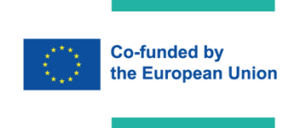Timeline: 2023 to 2025
Overall Coordinator: Prof. Atti Tchabi (Kara University, Togo)
MMU Coordinator: Assoc. Prof. Violet Kisakye
Funded by the EU through Erasmus+-CBHE
According to numerous authors, agriculture and farming are a major source of livelihood in the countries of Sub Saharan Africa (SSA), contributing between 15 % and 40 % of the gross domestic product, providing livelihood for over 70% of SSA population through family farming and employing at least 34% of the active workforce with its potential heavily underexploited. One of the reasons are poor connections between tertiary education as the knowledge base and immediate agricultural producers (farms). Furthermore, according to various authors, gender is an important factor in understanding every aspect of agricultural and rural development in SSA.
Women are essential to agricultural production but they lack adequate access to land and inputs, they tend to be excluded from decision-making and have less chances of accessing tertiary education, along with so many poverty-stricken individuals coming from remote areas.
 BASIS addresses the aforementioned issues by introducing interventions in higher education curricula towards a more field-based and competence-oriented knowledge and skills highly valued at the labour market. This will establish lasting and systemic exchange between the tertiary education and smallholder farmers in SSA.
BASIS addresses the aforementioned issues by introducing interventions in higher education curricula towards a more field-based and competence-oriented knowledge and skills highly valued at the labour market. This will establish lasting and systemic exchange between the tertiary education and smallholder farmers in SSA.
Likewise, BASIS introduces mechanisms and measures to increase access to tertiary education for women and poverty-stricken individuals from remote areas, and provide them with more equitable chances of employment and growth. Project outcomes will create opportunities for further innovation and modernization of higher education and agricultural production in SSA, equipping higher education institutions, their staff and students with different social and economic background, as well as smallholders in remote rural areas with essential mechanisms for sustainable advancement and growth.
SO1) To reshape student practice and shift it from teaching to competence-based practical work, and introduce farm placements to ensure better student employability, and
SO2) To build capacities and strengthen policies of partner HEIs to promote social inclusion, diversity, equity and accessibility of agricultural education.
For further details please contact Assoc. Prof. Violet Kisakye (MMU project Coordinator) on kviolet@mmu.ac.ug